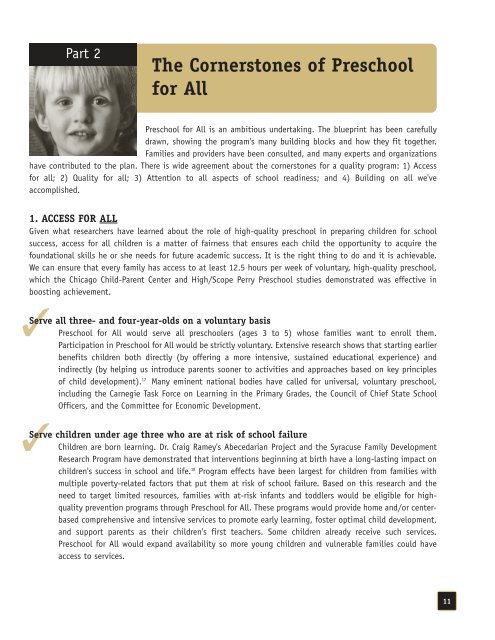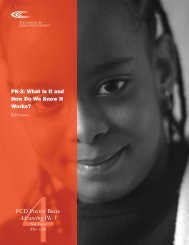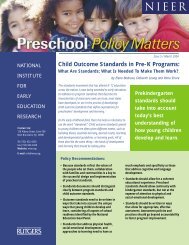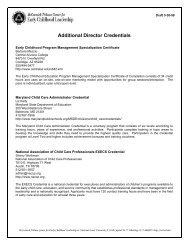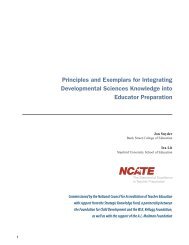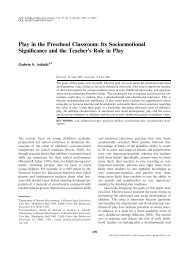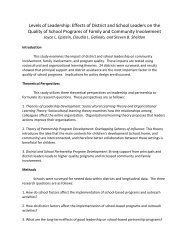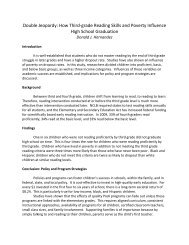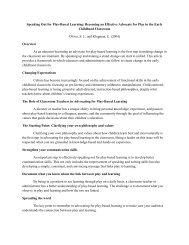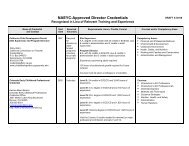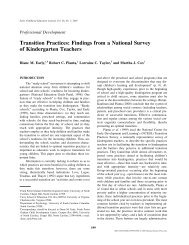High-Quality Early Education For All of Illinois' Children - Ounce of ...
High-Quality Early Education For All of Illinois' Children - Ounce of ...
High-Quality Early Education For All of Illinois' Children - Ounce of ...
- No tags were found...
Create successful ePaper yourself
Turn your PDF publications into a flip-book with our unique Google optimized e-Paper software.
Part 2The Cornerstones <strong>of</strong> Preschoolfor <strong>All</strong>Preschool for <strong>All</strong> is an ambitious undertaking. The blueprint has been carefullydrawn, showing the program's many building blocks and how they fit together.Families and providers have been consulted, and many experts and organizationshave contributed to the plan. There is wide agreement about the cornerstones for a quality program: 1) Accessfor all; 2) <strong>Quality</strong> for all; 3) Attention to all aspects <strong>of</strong> school readiness; and 4) Building on all we'veaccomplished.1. ACCESS FOR ALLGiven what researchers have learned about the role <strong>of</strong> high-quality preschool in preparing children for schoolsuccess, access for all children is a matter <strong>of</strong> fairness that ensures each child the opportunity to acquire thefoundational skills he or she needs for future academic success. It is the right thing to do and it is achievable.We can ensure that every family has access to at least 12.5 hours per week <strong>of</strong> voluntary, high-quality preschool,which the Chicago Child-Parent Center and <strong>High</strong>/Scope Perry Preschool studies demonstrated was effective inboosting achievement.✓Serve all three- and four-year-olds on a voluntary basisPreschool for <strong>All</strong> would serve all preschoolers (ages 3 to 5) whose families want to enroll them.Participation in Preschool for <strong>All</strong> would be strictly voluntary. Extensive research shows that starting earlierbenefits children both directly (by <strong>of</strong>fering a more intensive, sustained educational experience) andindirectly (by helping us introduce parents sooner to activities and approaches based on key principles<strong>of</strong> child development). 17 Many eminent national bodies have called for universal, voluntary preschool,including the Carnegie Task <strong>For</strong>ce on Learning in the Primary Grades, the Council <strong>of</strong> Chief State SchoolOfficers, and the Committee for Economic Development.✓Serve children under age three who are at risk <strong>of</strong> school failure<strong>Children</strong> are born learning. Dr. Craig Ramey's Abecedarian Project and the Syracuse Family DevelopmentResearch Program have demonstrated that interventions beginning at birth have a long-lasting impact onchildren's success in school and life. 18 Program effects have been largest for children from families withmultiple poverty-related factors that put them at risk <strong>of</strong> school failure. Based on this research and theneed to target limited resources, families with at-risk infants and toddlers would be eligible for highqualityprevention programs through Preschool for <strong>All</strong>. These programs would provide home and/or centerbasedcomprehensive and intensive services to promote early learning, foster optimal child development,and support parents as their children's first teachers. Some children already receive such services.Preschool for <strong>All</strong> would expand availability so more young children and vulnerable families could haveaccess to services.11


